Will Jones recently returned from an extraordinary trip with his son Danny, travelling largely by foot in northern Cameroon. Described as a rite of passage, it is clear in this part of the trip – which featured a walk into the Vocre Mountains, overnighting in or next to two villages, and partaking in a local animist ceremony – how bonding an experience it has already become. Two points of clarification: One, the below excerpts are taken from Will’s diary, in chronological order. Two, there are several references to Danny’s injury, which was picked up in Bali, when he came off his bike, a couple of weeks before flying out to join his father.
To start with
We start our walk into the mountains and spend time sheltering from the rain in a blacksmith’s house, who uses the time to fashion Danny a bracelet, and from whom we learn much about Dowayo society, after which we spend our first night under a tree on the edge of a Mbororo village. I am told it’s the first time a visitor has ever camped here. The village chief brings us hot milk. Danny slips in a river, and we have to dress his bandages again.
On order and chaos
The first piece of a journey is always tough. It doesn’t matter what it is. If you disrupt, it’s tough. The chaos. Then midway, the journey flips, like magic, into an emerging order. I’ve always been chronos in the family, managing time and creating order. Laura [Will’s wife] is kairos and is so much more comfortable with chaos. The two work well together, though I’ve learnt over the years that it is better to focus on the world of possibility and to embrace chaos. Too much order is suffocating and the definition of a trap. This is especially true of travel, and something – for all the adventures I’ve had the good fortune to experience – I continually struggle with.
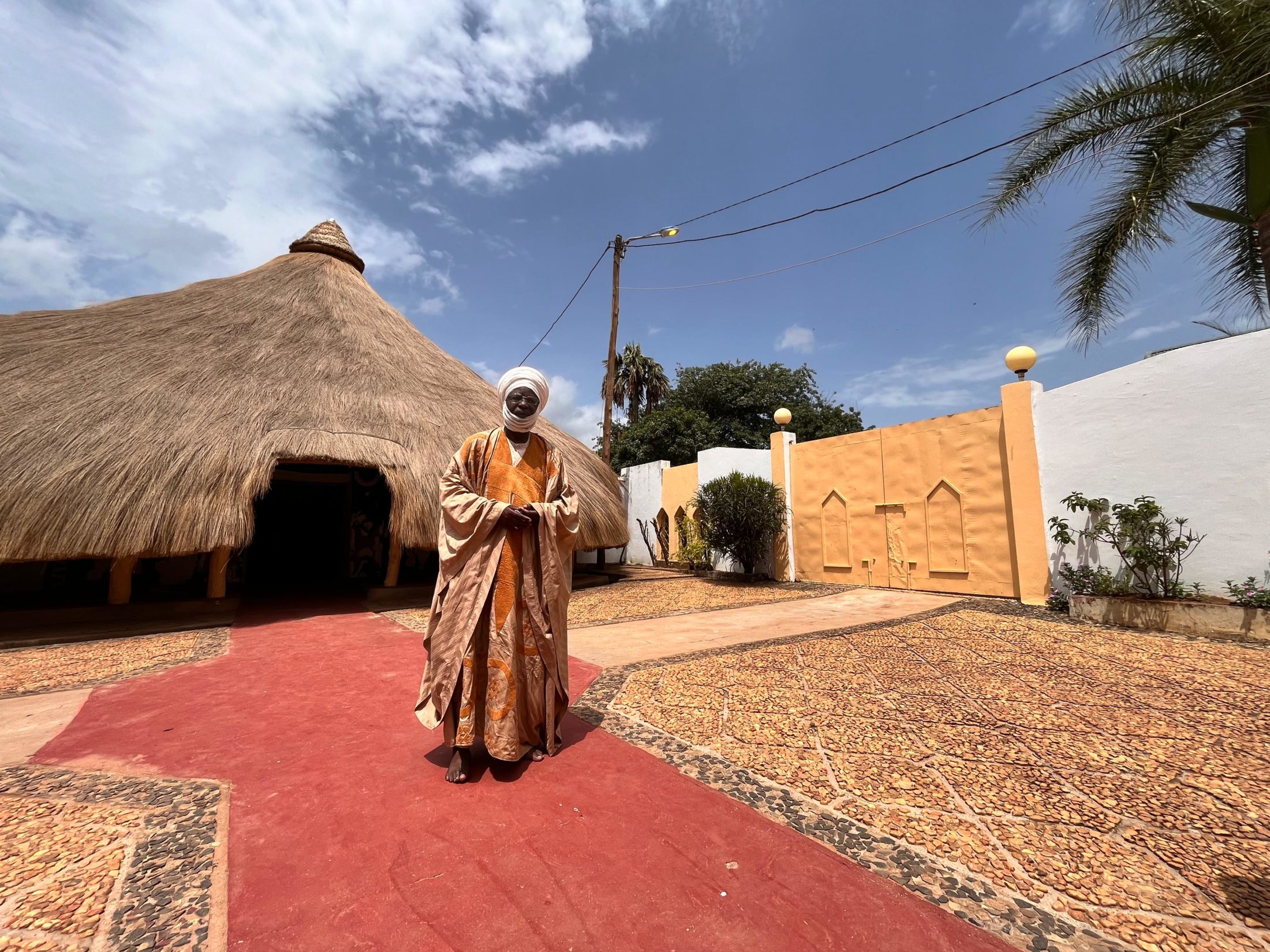
Totems and peanuts
We leave the Mbororo and walk deeper into the mountains. We arrive at a Dupa village in the foothills. African fire finches fly back and forth, cleaning up the grain spilt along the path. An animist totem on the village path keeps bad spirits away. Two women wearing nothing but leaves are preparing a peanut brew cooked in gourds over an open fire. The peanuts will be ground and turned into a paste. The daughter helps her mother as we take a rest and look back down the valley. Danny’s foot aching a little.
Reading stones
We move further up the hill to the chief’s house. He is a reported 104 years old and still smokes and is also the master witch doctor. When we arrive, he is consulting a young man about affairs of the heart and family which apparently cannot be cured. The chief is fingering a bowl of water with shells, bits of wood, leaves, and a pewter ring. He inspects the bowl curiously and stirs it again before wetting a palm brush and swabbing the young man’s hands and back. The stones are placed in his hands, which are then closed tightly. They sway a moment before dropping the stones back into the bowl. The pattern is studied, and the chief pronounces the session over.
Then it is our turn for a seance to establish whether we are good energies and welcome in the village. As Danny’s stones are placed in the bowl, the chief and his son pause for a while. Danny and I exchange nervous glances. They mutter to each other before asking if he has had trouble walking up the hill. It’s extraordinary. Danny hasn’t been limping, and the wound isn’t obvious. The injury’s been a significant part of our journey and somehow they knew it.
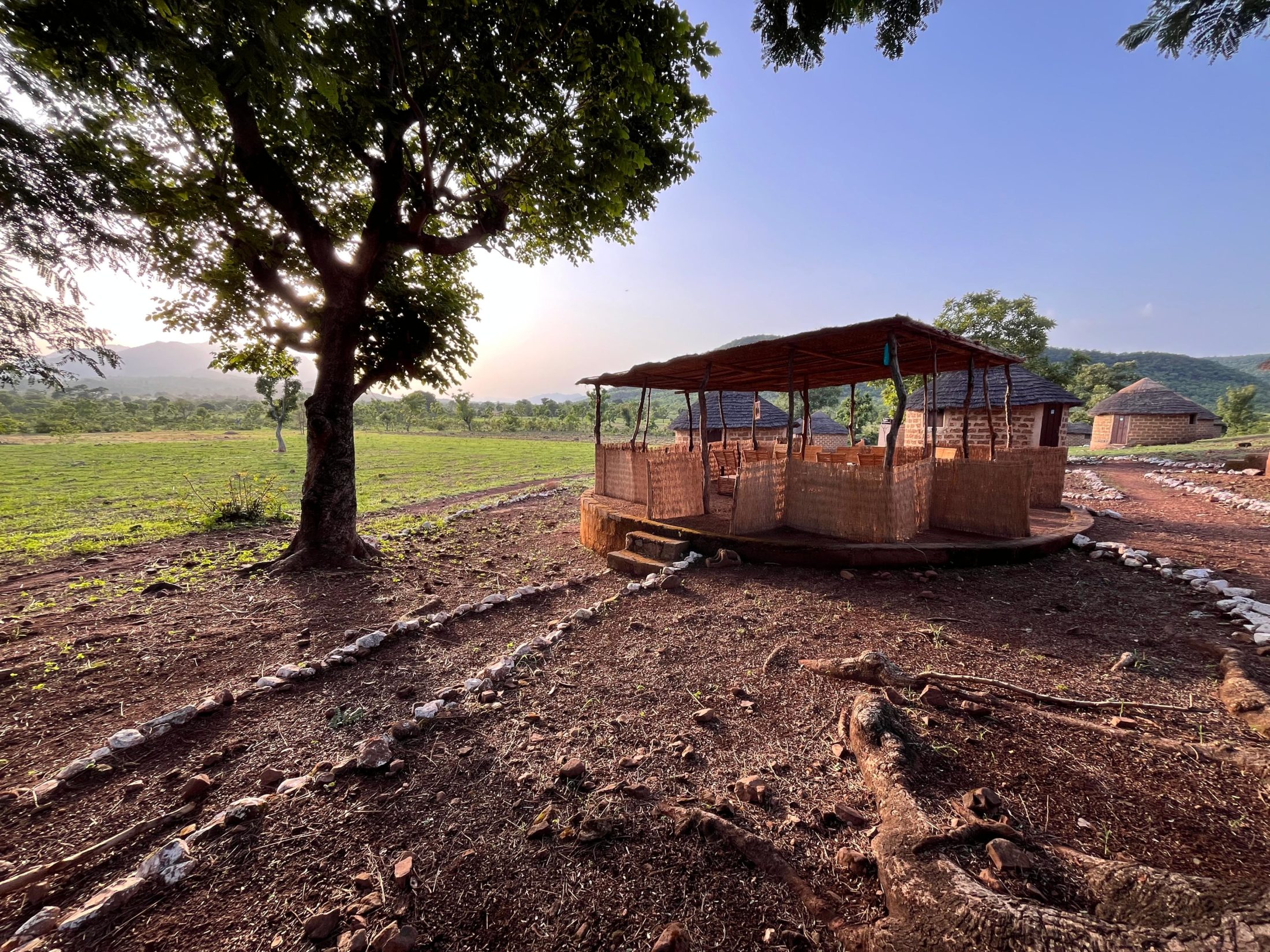
Where two worlds meet
I’m miles away from anywhere I know and I’m picking up 4G. It’s caught my attention.
The turning point
We take part in a blessing at the top of the mountain, a place accessible only to males. Engaged in a two-minute meditation, praying to the south, while the chief priest acted as the conduit to the pantheon of gods that reside within us. Nearby, the chief minister sits on a rock and his attendants stand at the door of the steep-faced rock, serving as messengers of our wishes to the animist universe. It’s over and we turn back for home.
Morning in the Dupa village
The next morning in the Dupa village starts sunny. Young baby goats clamber and frolic. A dog lies in the embers of last night’s fire. Women prepare new grass skirts. The old men come and say good morning and wander off again. Denise, our cook, always looks so smart as she follows us around preparing our delicious but simple meals. The young kids are fed in the open doorway of one of the huts.
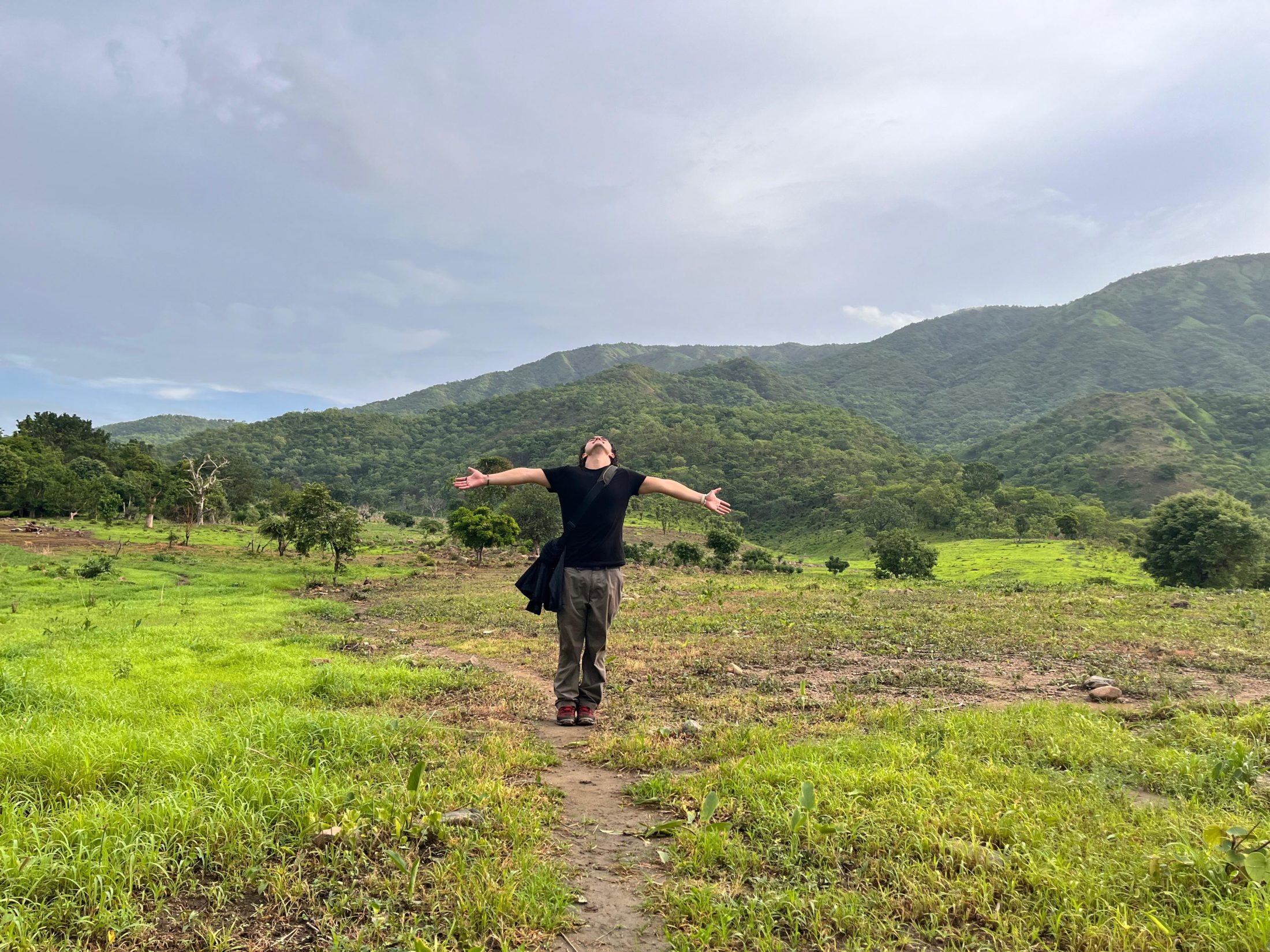
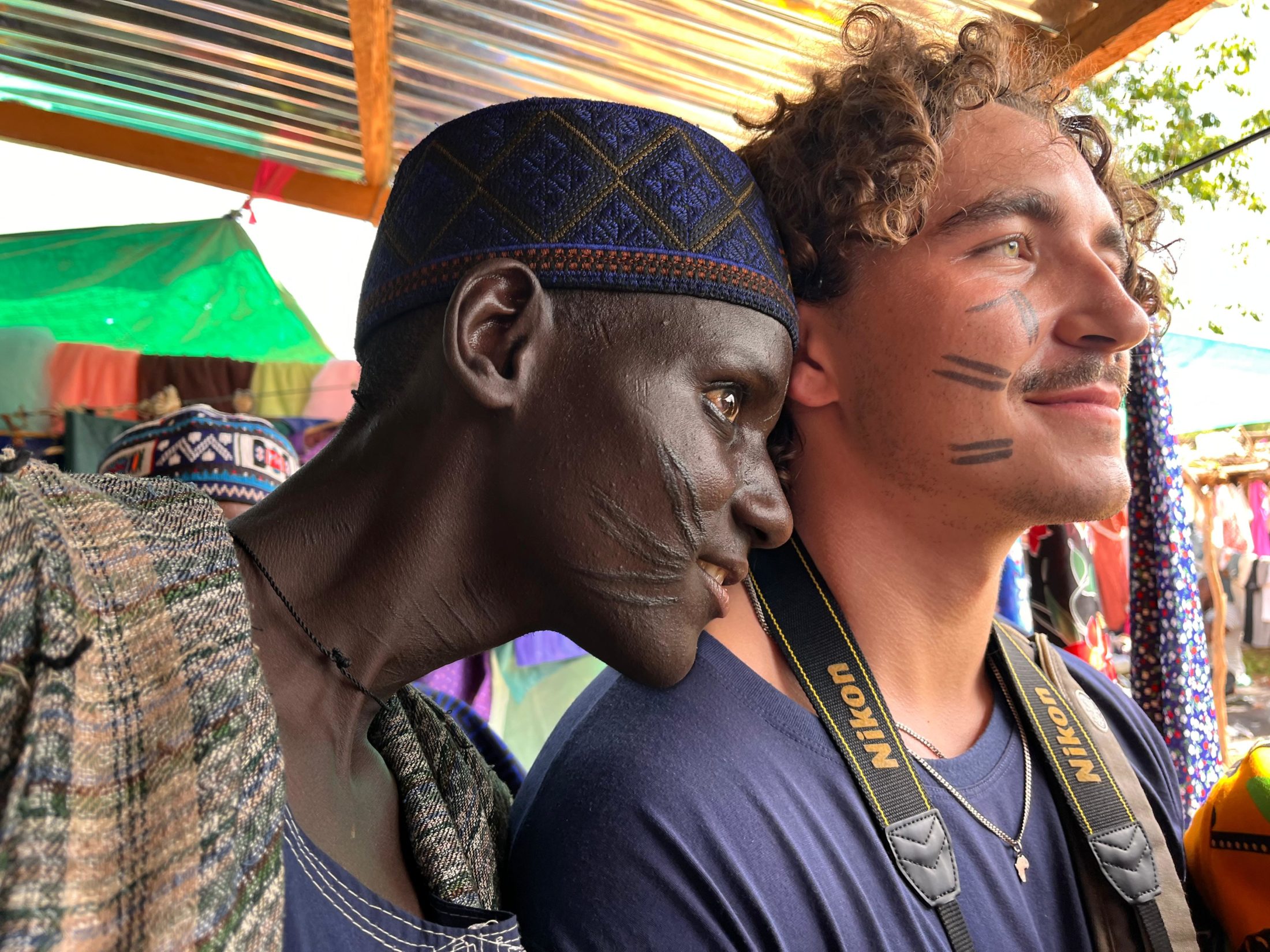
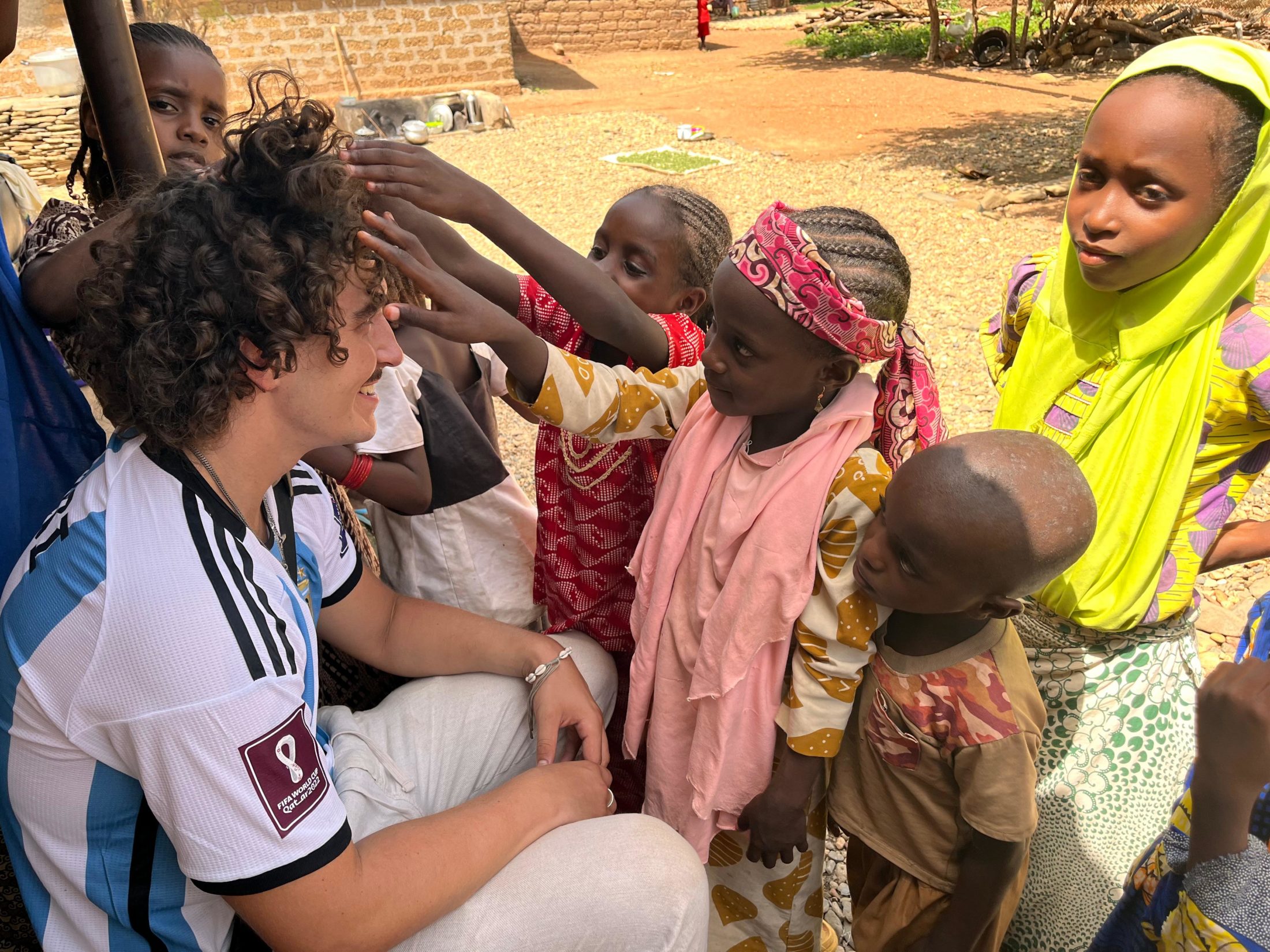
A rite of passage
I occasionally put my arm around Danny or give him a hug. It lights up the faces of the Dupa. They strike me as being a very gentle people. I feel we align with their principles, and it reminds me why we’re here. Danny has left school, graduated from university, travelled the world, and is now preparing to go to work in the city. While we have observed and celebrated his coming of age as best we could, ours is a society where time is not marked by great rites of passage. Coming here with Danny is my way of marking his becoming a man, a young warrior, so to speak, about to engage with the marketplace. Two years in the planning, this trip is in effect his rite of passage.
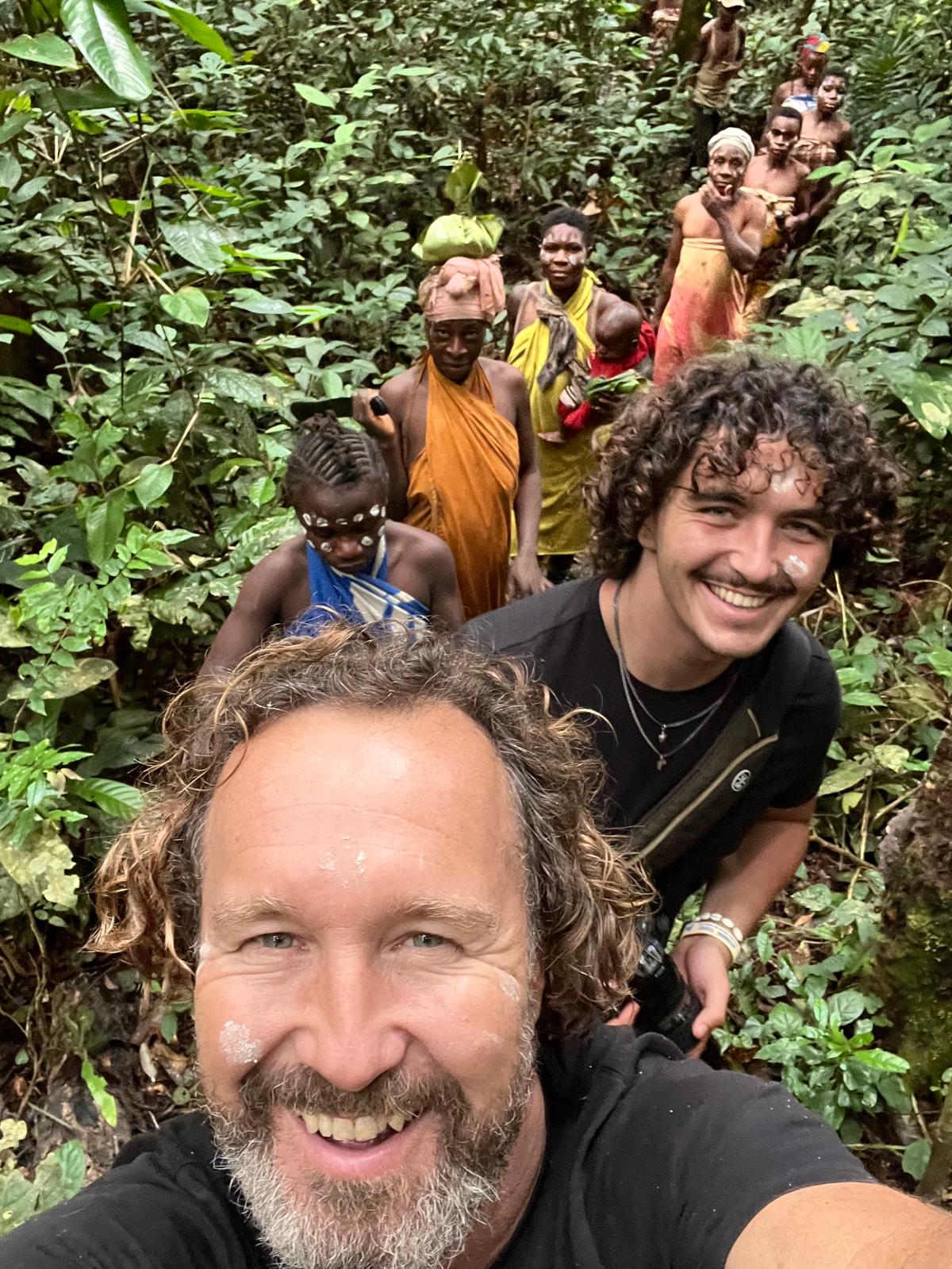
Moving on
We trade salt, soap, matches, and biscuits. The chief has not been to Poli, the nearest town, for six months. His son hasn’t been for years. The children play with everyone, whatever their age. Eventually, our goodbyes said, we leave. I can still hear the drums as we drift down the valley, out of sight, and onto the next adventure.
If you would like to learn more about Will’s trip to Cameroon, please do get in touch. In the meantime, look out for the second instalment of the trip, this time with the Ba’aka.
